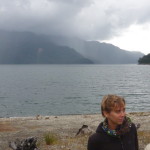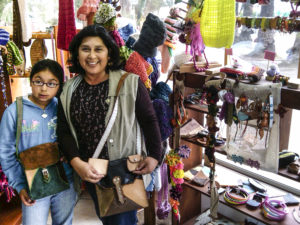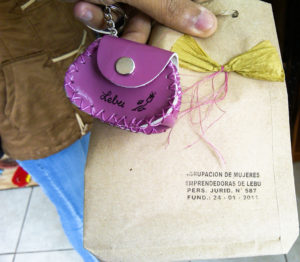Of all the places in the world SKI Charities could extend to, you might be wondering, “Why Lebu, Chile?” In our last blog post, we talked with Shyam about his most recent travels to Lebu, where he discussed the vibrant presence of the indigenous Mapuche culture and his admiration of their hard work. How did he come to recognize this area as a perfect destination for SKI Charities?
Similar to Mutare, Zimbabwe, Lebu is a place where Shyam had a pretty strong network. A few years ago he was living in Buenos Aires doing some consulting work and from there ventured to backpack around Chile. He notes:
“Right away I felt like this was a country that was on the cusp, even more so than Zimbabwe (Chile is doing much better). What really struck a chord for me was the indigenous population in Chile. There’s a long history of complications around indigenous people here in the United States. And it’s always sort of been a part of the psyche of growing up as an American. Similarly in South America there have had some very difficult times that the indigenous people have gone through – and even in the modern era, these countries in South America don’t discuss or address the issue as we do in North America.”
Shyam contends that the indigenous people in Chile are even further behind, and with less opportunity to extricate themselves from the historical hardships they’ve encountered following the occupation and settlement from Imperial Spain. “And we can be unique in our focus on these indigenous people who are not really on the radar,” he says.
“They’re seen as different, as a different ethnicity, yet the public isn’t so focused on them. They’re sort of lumped in with the poor. And the poor are addressed at certain levels, but not enough for the amount of achievement that’s gone on in Chile. Chile is going through a huge, unprecedented economic boom. I think they’ve reached middle-income status as a nation. They are the closest to being called a ‘developed country’ as any country one would think should be called ‘developing.’ They’re doing great. Low population, huge natural resource boom, good infrastructure, good education. But then that makes the gap even bigger with those who have been left behind. So I knew we could tackle this indigenous issue.”
One of the benefits of working with these indigenous people in a country that is already on the right track is that the path is essentially paved.
“The schools are already great. If we could just get them access to the system that has already been built, they’ll be able to make that jump. In a place like Congo, if we put some people in school, there wouldn’t be proper schools for them to go to. Even in Zimbabwe, there are so few good schools that we can only put a few people into these good networks. The same goes for the trading community. In Chile, the network is there. We just need to help some of the people get plugged into it. And if we can get them plugged into it, the work is almost done. And that’s something very rare for a lot of developing countries. That’s a really important point that’s specific to Chile.”
Years after his first backpacking trip in Chile and after establishing SKI Charities in Zimbabwe, Shyam went with his gut impressions of Lebu and tapped into the growing economic and educational infrastructure there by giving members of the indigenous Mapuche culture access to it. The environment was ripe with opportunity, already set up for people to thrive. The only thing missing was access. SKI Charities has started to provide access to those who are disenfranchised, and the result is participants who are brimming with excitement and pride – and they have their businesses and their rejuvenated communities to show for it.




